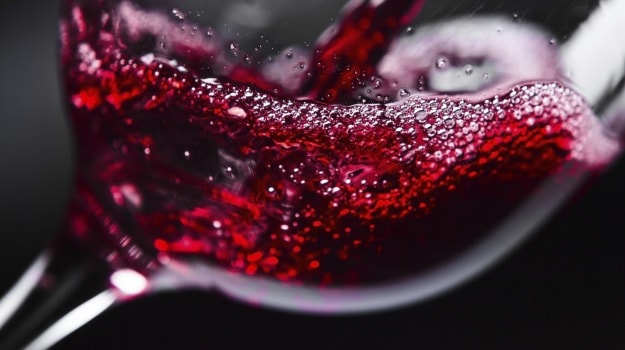A lone Syrian winery behind "the world's most harrowing wine to produce" is seeking to break into new markets at the world's leading wine show, Vinexpo, this week.(Most Wine Drinkers Can't Tell the Cheap From Expensive)"I haven't been able to visit the vineyard in four years since the conflict began," said Sandro Johnny Saade, one of two Lebanese-Syrian brothers who set up the Domaine de Bargylus domain near Latakia on Syria's north coast in 2003. "It must now be the world's most harrowing wine to produce, probably the most dangerous," due to the Syrian conflict that began four years ago, he told AFP.
An old Christian Orthodox family with roots in Syria and Lebanon and holdings across the region, the Saades lost their lands in expropriations by Egypt's Nasser in the late 1950s but never gave up on their dream of running vineyards in Lebanon and Syria.With the help of French wine consultant Stephane Derenoncourt, Sandro and brother Karim founded the Domaine de Bargylus in the Latakia region, which has a wine tradition dating back to the Canaanites and the Phoenicians.(All You Need to Know About Wine Coolers)In Lebanon, they founded Chateau Marsyas in the Bekaa Valley, a 65-hectare vineyard.
"Syria was the world's most hospitable country, we never had problems," Saade said. "But making wine there was always three times more expensive than making wine in Bordeaux or California."The Syrian winery produces high-end reds and whites from a 12-hectare vineyard worked by 35 families, Muslims, Alawites and a few Christians. The wines sell at around 36 euros ($40.50) a red and 28 euros for a white."There've been a couple of bombings but no real problems so far on the spot," said Saade.
But on the economic front, there were always complex logistical headaches, from importing bottles and corks from France, to sending wine tests to laboratories.(Wine: English Wine Week)The war multiplied the difficulties, with the brothers unable to visit from Lebanon, official paperwork slowed up, transport troublesome, the risk factor continuous, and the wine forced to transit through Port Said in Egypt to Belgium, where it now has to be stocked.The Syrian and Lebanese wines are sold in Britain, France, Malta, Dubai and Istanbul and are soon to hit markets in Hong Kong and Japan.At Vinexpo, the two wineries hope to attract new clients, specially in the United States.
The fair, held in Bordeaux one year and in Hong Kong the next with 45,000 buyers in attendance -- many from the US, the world's biggest wine consumer, and from Asia -- is a showcase for the world's best wines and spirits.(Wine Terminology: A Crash Course)
An old Christian Orthodox family with roots in Syria and Lebanon and holdings across the region, the Saades lost their lands in expropriations by Egypt's Nasser in the late 1950s but never gave up on their dream of running vineyards in Lebanon and Syria.With the help of French wine consultant Stephane Derenoncourt, Sandro and brother Karim founded the Domaine de Bargylus in the Latakia region, which has a wine tradition dating back to the Canaanites and the Phoenicians.(All You Need to Know About Wine Coolers)In Lebanon, they founded Chateau Marsyas in the Bekaa Valley, a 65-hectare vineyard.
"Syria was the world's most hospitable country, we never had problems," Saade said. "But making wine there was always three times more expensive than making wine in Bordeaux or California."The Syrian winery produces high-end reds and whites from a 12-hectare vineyard worked by 35 families, Muslims, Alawites and a few Christians. The wines sell at around 36 euros ($40.50) a red and 28 euros for a white."There've been a couple of bombings but no real problems so far on the spot," said Saade.
But on the economic front, there were always complex logistical headaches, from importing bottles and corks from France, to sending wine tests to laboratories.(Wine: English Wine Week)The war multiplied the difficulties, with the brothers unable to visit from Lebanon, official paperwork slowed up, transport troublesome, the risk factor continuous, and the wine forced to transit through Port Said in Egypt to Belgium, where it now has to be stocked.The Syrian and Lebanese wines are sold in Britain, France, Malta, Dubai and Istanbul and are soon to hit markets in Hong Kong and Japan.At Vinexpo, the two wineries hope to attract new clients, specially in the United States.
The fair, held in Bordeaux one year and in Hong Kong the next with 45,000 buyers in attendance -- many from the US, the world's biggest wine consumer, and from Asia -- is a showcase for the world's best wines and spirits.(Wine Terminology: A Crash Course)
Advertisement









